
Huraa: A Tropical Paradise in the Maldives
Huraa, a small island in the Maldives, is a hidden gem that offers a perfect blend of natural beauty and cultural richness. Located in the Kaafu Atoll, Huraa is just a short boat ride from the capital city, Malé. This tranquil island is surrounded by crystal-clear waters and pristine white sandy beaches, making it an ideal destination for those looking to escape the hustle and bustle of everyday life. One of the main attractions of Huraa is its vibrant coral reefs. Snorkelers and divers will be thrilled by the underwater world teeming with colorful fish and other marine life. The island’s close proximity to several dive sites makes it a favorite spot for both beginners and experienced divers. Additionally, Huraa’s lagoon is perfect for kayaking and paddleboarding, offering visitors the chance to explore its serene waters at their own pace. Huraa is not just about beautiful beaches and water activities. The island has a rich cultural heritage that can be experienced through its friendly local community. Visitors can take a stroll through the village to see traditional Maldivian houses, visit the local mosque, and even observe the craftsmanship of local artisans. Don’t miss out on the chance to taste authentic Maldivian cuisine at one of the local eateries, where fresh seafood and coconut-based dishes are the highlights. Huraa’s commitment to sustainability is evident in its various eco-friendly initiatives. The island has several projects aimed at preserving its natural environment, including waste management programs and coral reef restoration efforts. Tourists are encouraged to participate in these activities, making their visit not only enjoyable but also meaningful. Whether you are looking to relax on the beach, explore the underwater world, or immerse yourself in local culture, Huraa in the Maldives offers a unique and unforgettable experience. This tropical paradise is the perfect destination for travelers seeking both adventure and tranquility.
Local tips in Huraa
- Visit the local mosque to gain insight into the island's cultural and religious practices.
- Try traditional Maldivian dishes at local eateries for an authentic culinary experience.
- Participate in eco-friendly activities like beach cleanups and coral reef restoration.
- Bring reef-safe sunscreen to protect the delicate marine environment while enjoying water activities.
- Consider staying in a guesthouse to support local businesses and get a more immersive experience.
Huraa: A Tropical Paradise in the Maldives
Huraa, a small island in the Maldives, is a hidden gem that offers a perfect blend of natural beauty and cultural richness. Located in the Kaafu Atoll, Huraa is just a short boat ride from the capital city, Malé. This tranquil island is surrounded by crystal-clear waters and pristine white sandy beaches, making it an ideal destination for those looking to escape the hustle and bustle of everyday life. One of the main attractions of Huraa is its vibrant coral reefs. Snorkelers and divers will be thrilled by the underwater world teeming with colorful fish and other marine life. The island’s close proximity to several dive sites makes it a favorite spot for both beginners and experienced divers. Additionally, Huraa’s lagoon is perfect for kayaking and paddleboarding, offering visitors the chance to explore its serene waters at their own pace. Huraa is not just about beautiful beaches and water activities. The island has a rich cultural heritage that can be experienced through its friendly local community. Visitors can take a stroll through the village to see traditional Maldivian houses, visit the local mosque, and even observe the craftsmanship of local artisans. Don’t miss out on the chance to taste authentic Maldivian cuisine at one of the local eateries, where fresh seafood and coconut-based dishes are the highlights. Huraa’s commitment to sustainability is evident in its various eco-friendly initiatives. The island has several projects aimed at preserving its natural environment, including waste management programs and coral reef restoration efforts. Tourists are encouraged to participate in these activities, making their visit not only enjoyable but also meaningful. Whether you are looking to relax on the beach, explore the underwater world, or immerse yourself in local culture, Huraa in the Maldives offers a unique and unforgettable experience. This tropical paradise is the perfect destination for travelers seeking both adventure and tranquility.
When is the best time to go to Huraa?
Iconic landmarks you can’t miss
Four Seasons Resort Maldives at Kuda Huraa
Experience Maldivian charm and world-class luxury at Four Seasons Kuda Huraa, a serene island paradise just a speedboat ride from Malé.

Republic Square
Experience the heart of Malé at Republic Square: lush greenery, cultural events, and the nation's largest flag.
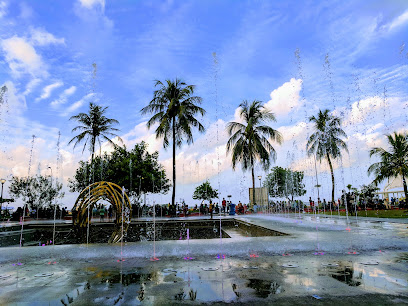
Hukuru Miskiyy (مسجد الجمعة القديم في ماليه)
Discover Malé's oldest mosque, a stunning coral stone structure with intricate carvings and a rich history dating back to 1658.
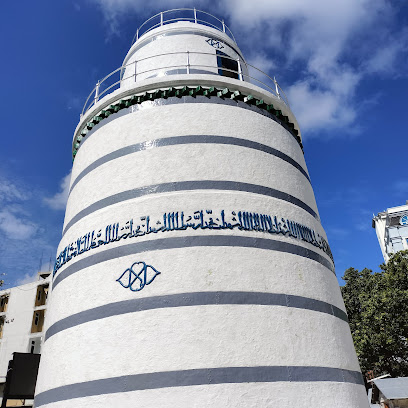
Pearl Sands of Maldives
Experience a tranquil Maldivian escape at Pearl Sands of Maldives, Huraa – beachfront bliss, cultural immersion, and unforgettable moments.
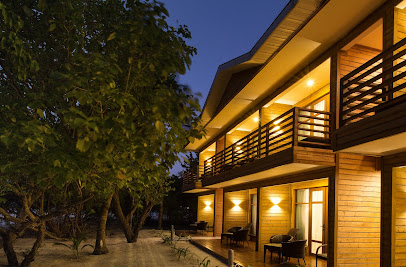
Tsunami Monument
A solemn memorial in Malé, commemorating the victims of the 2004 tsunami and symbolizing Maldivian resilience and unity.
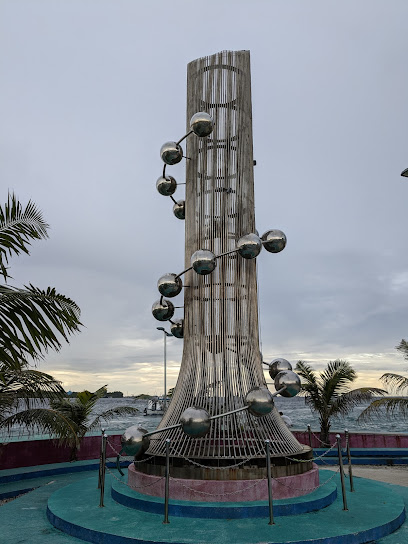
The Sunrise Huraa
Experience authentic Maldivian hospitality and island charm at The Sunrise Huraa, your gateway to Huraa Island's beauty and culture.

Blue Terrace
Enjoy Asian & Western cuisine with breathtaking ocean views at Blue Terrace Restaurant in Huraa, Maldives.
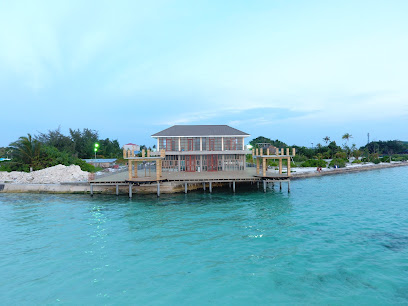
Beach Heaven Maldives - Golden Turtle Guest House
Discover the real Maldives: beachfront bliss, local culture, and affordable luxury at Beach Heaven Maldives - Golden Turtle Guest House.
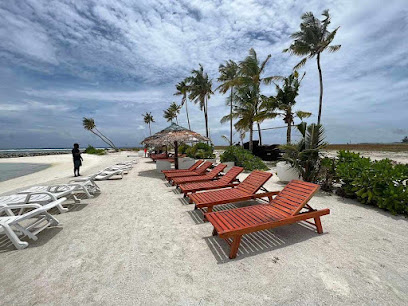
Victory Monument
Commemorating Maldivian courage and resilience, the Victory Monument in Malé offers a serene space for reflection on the nation's history.
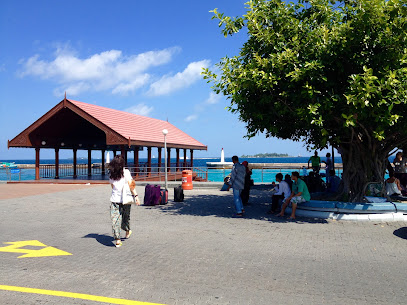
Medhu Ziyaaraiy
Visit Medhu Ziyaaraiy in Malé, a historical shrine honoring the scholar who introduced Islam to the Maldives and shaped its cultural identity.
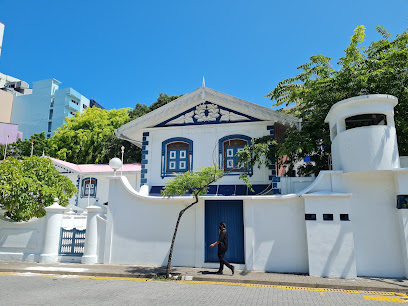
Ibrahim Rasgefaanuge Ziyaaraiy Shrine
Discover the serene Ibrahim Rasgefaanuge Ziyaaraiy Shrine in Malé, a tribute to Maldivian Islamic heritage and a place for peaceful reflection.
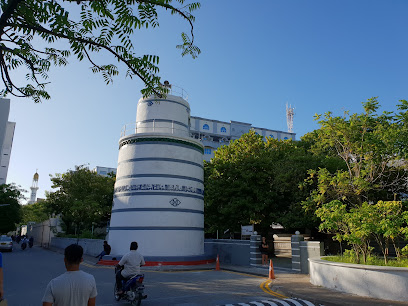
National Flag (Bodu Dhidha)
Discover the National Flag (Bodu Dhidha) in Malé, a vibrant symbol of Maldivian heritage and unity, perfect for cultural immersion and stunning photographs.
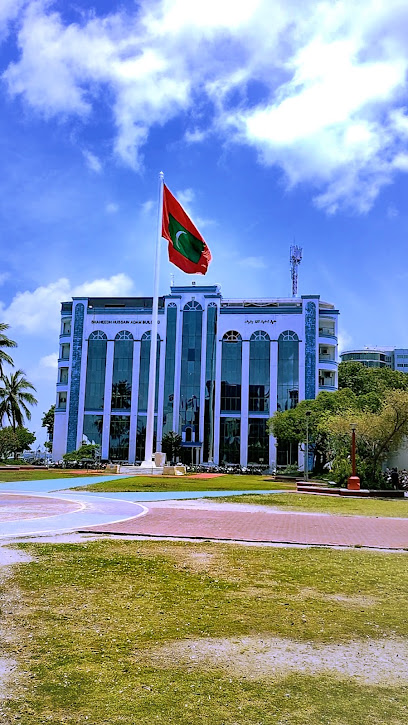
Sinamale Monument
A landmark symbolizing the enduring friendship between the Maldives and China, offering cultural insights and scenic views in the heart of Malé.
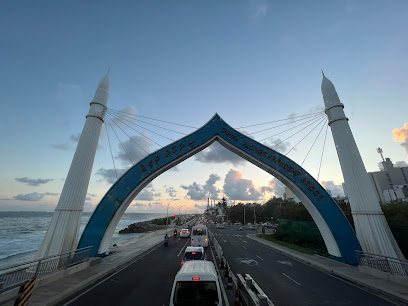
Huraa Kulhi
Discover Huraa Kulhi: A serene mangrove ecosystem offering a tranquil escape and a glimpse into the Maldives' rich biodiversity.
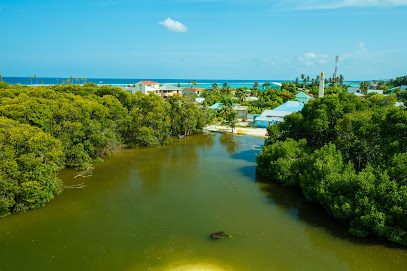
Port of Huraa
Experience the heart of Huraa: where local culture meets stunning marine beauty in the Maldives.
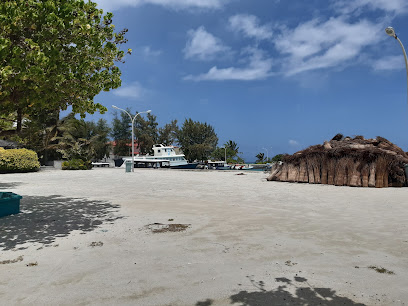
Unmissable attractions to see
Republic Square
Experience the vibrant culture and serene beauty of Republic Square, a must-visit city park in the heart of Malé, Maldives.
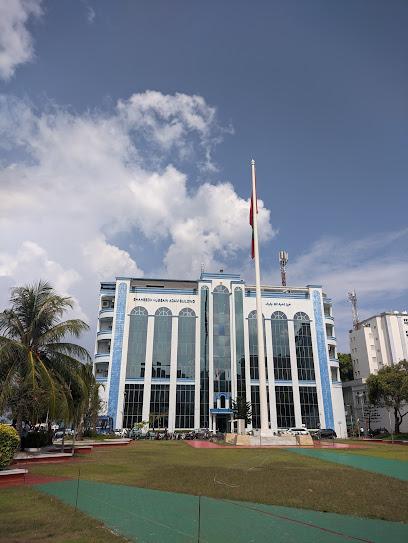
National Museum, Maldives
Explore the National Museum of Maldives for an insightful journey through the rich history and culture of this beautiful archipelago.

Lankanfinolhu
Discover the serene beauty of Lankanfinolhu, a breathtaking island in the Maldives, perfect for relaxation, adventure, and unforgettable memories.
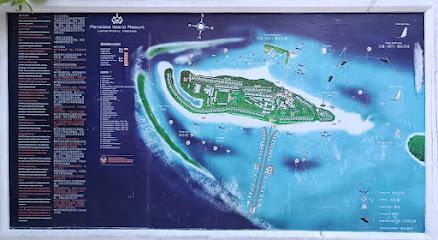
Gili Lankanfushi Maldives
Discover the ultimate luxury experience at Gili Lankanfushi Maldives, where pristine beaches meet unparalleled service in a stunning island paradise.

Artificial Beach
Explore the beauty of Artificial Beach in Malé, a tranquil oasis perfect for relaxation, water sports, and experiencing Maldivian culture amid urban life.
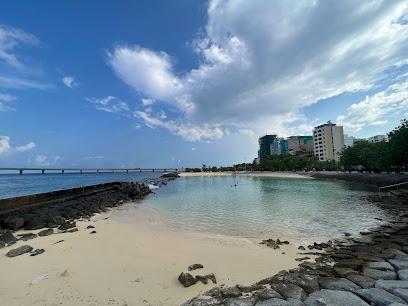
Secret Paradise Maldives Tours
Explore the hidden gems of the Maldives with Secret Paradise Tours—your gateway to unforgettable adventures and cultural experiences in paradise.
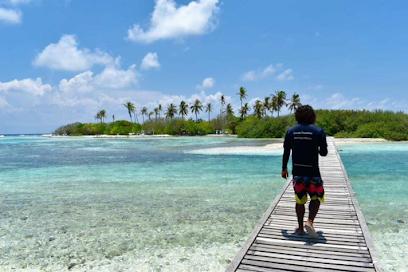
Medhu Ziyaaraiy
Explore Medhu Ziyaaraiy, a serene shrine in Malé, steeped in history and spirituality, reflecting the cultural essence of the Maldives.
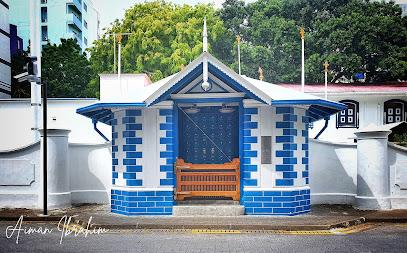
Old Friday Mosque Minaret (Since 1675)
Discover the Old Friday Mosque Minaret, a historical landmark in Malé showcasing exquisite coral stone craftsmanship and rich Islamic heritage.
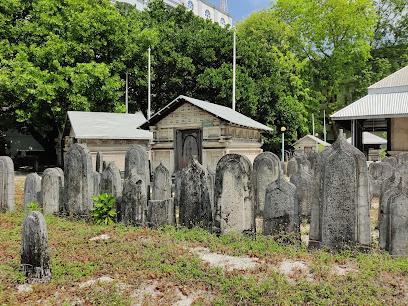
The Jailbreaks Surf Point
Experience the ultimate surfing adventure at Jailbreaks Surf Point, a breathtaking destination for beach lovers and thrill-seekers in the Maldives.
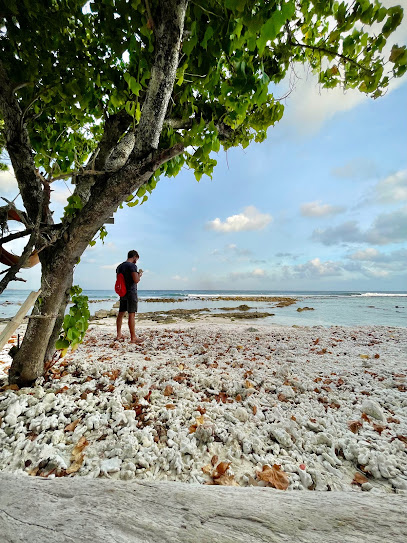
Hura Mangrove Bridge
Experience tranquility at Hura Mangrove Bridge, a serene nature preserve in Huraa, Maldives, perfect for nature lovers and photography enthusiasts.
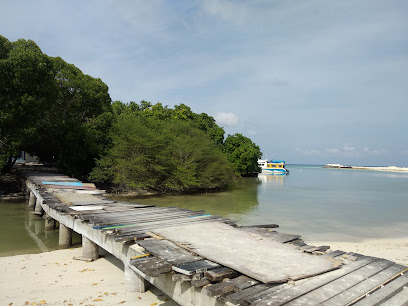
Huraa Kulhi
Explore Huraa Kulhi, a serene mangrove paradise in the Maldives, perfect for nature lovers and adventure seekers alike.
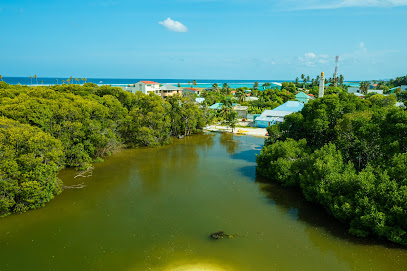
Lohis surf beach
Experience the tranquility of Lohis Surf Beach in Huraa, Maldives, where adventure meets relaxation in a stunning tropical paradise.
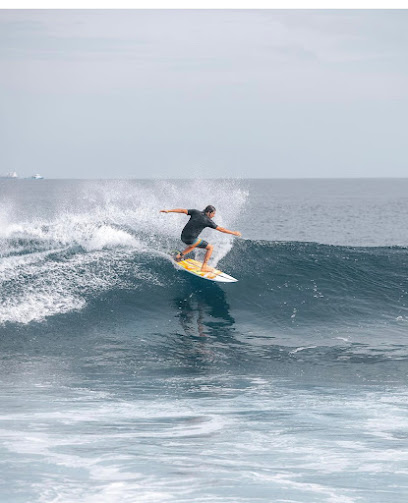
Nikagas Beach
Experience the serene beauty of Nikagas Beach in Huraa, Maldives, where soft sands and crystal-clear waters await every visitor.
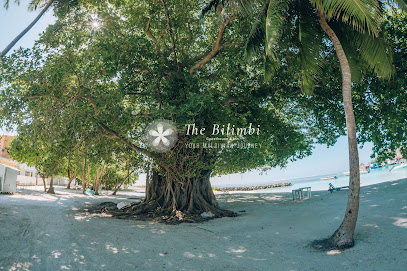
Koaru Kendi Bridge
Experience the stunning landscapes of Huraa at Koaru Kendi Bridge, a beautiful tourist attraction perfect for photography and nature lovers.
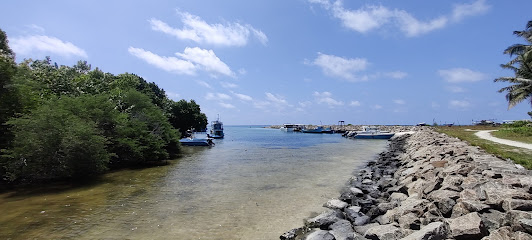
Honky’s Surf Break
Discover the exhilarating waves and stunning scenery at Honky's Surf Break in Himmafushi, the ultimate surf destination in the Maldives.
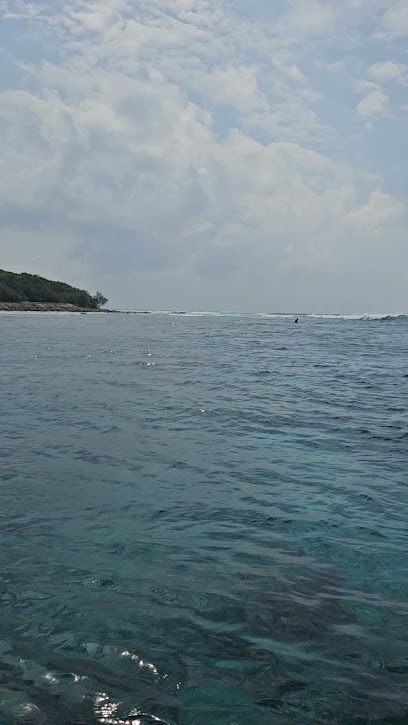
Essential places to dine
Faraumati/Hook Restaurant
Experience exquisite seafood and authentic Maldivian flavors at Faraumati/Hook Restaurant in Himmafushi.
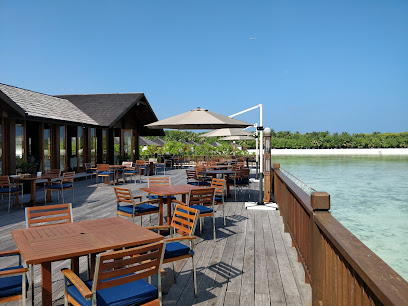
The Lagoon Restaurant
Experience exquisite seafood dining at The Lagoon Restaurant in Paradise Island Resort with stunning views and impeccable service.
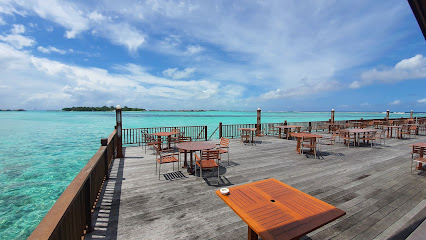
Feast
Indulge in exquisite flavors at Feast, the buffet restaurant at Sheraton Maldives Full Moon Resort & Spa—where culinary artistry meets island paradise.
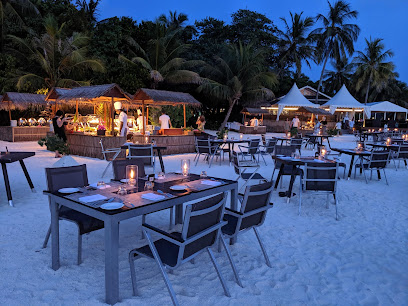
Al Tramonto Bar & Restaurant
Experience authentic Italian cuisine at Al Tramonto Bar & Restaurant in Himmafushi - where every meal is a journey through Italy's finest flavors.
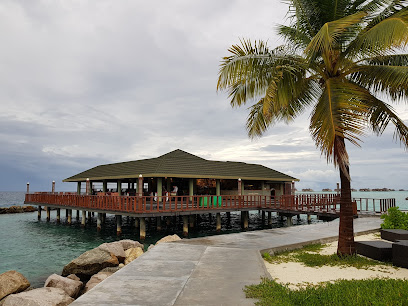
Baan Huraa
Experience exquisite dining at Baan Huraa in Gulhi – where local flavors meet international cuisine amidst breathtaking ocean views.
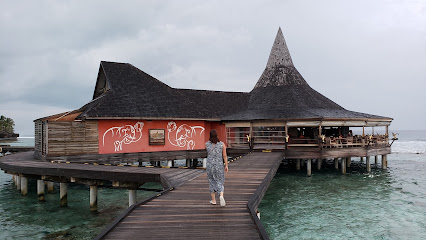
Santa Rosa Restaurant
Experience authentic Maldivian cuisine blended with international flavors at Santa Rosa Restaurant in Thulusdhoo.
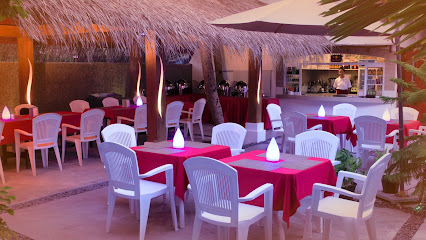
The Harbor
Discover tranquility at The Harbor in Huraa, where delicious flavors meet breathtaking views in a cozy cafe setting.
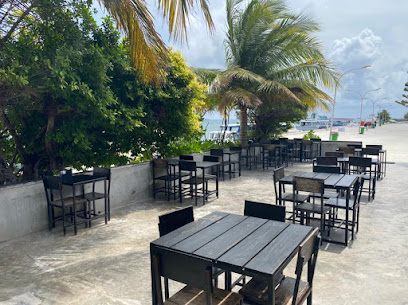
Blue Terrace
Experience culinary delight at Blue Terrace Restaurant in Huraa with breathtaking sunset views and a warm Maldivian welcome.
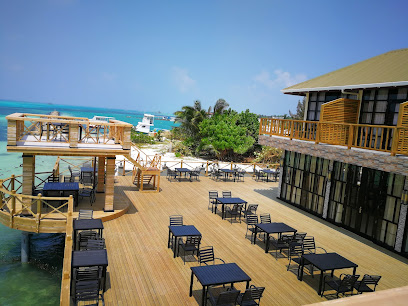
Bageecha Restaurant
Discover authentic Maldivian flavors at Bageecha Restaurant in Himmafushi - where culinary tradition meets tropical beauty.
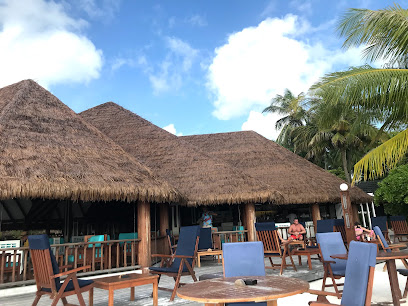
Sunset Holidays & Restaurant Huraa
Discover authentic Maldivian flavors at Sunset Holidays & Restaurant in Huraa – where great food meets stunning sunsets.
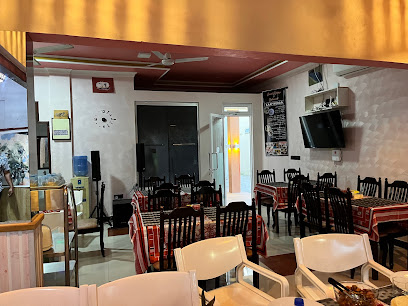
Maakana Restaurant
Experience the essence of Maldivian cuisine at Maakana Restaurant in Huraa – where flavor meets tranquility.
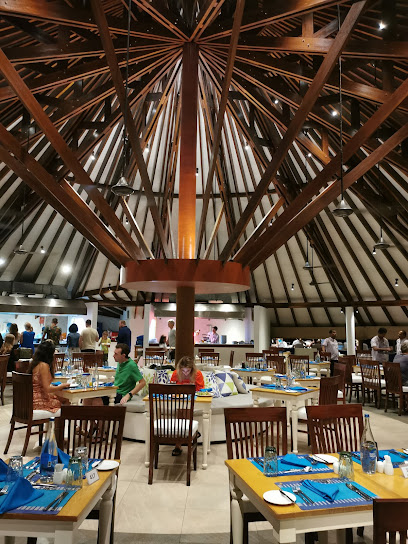
Raiyvila Sunset Terrace Bar
Experience breathtaking sunsets at Raiyvila Sunset Terrace Bar in Huraa – your perfect escape in the Maldives.
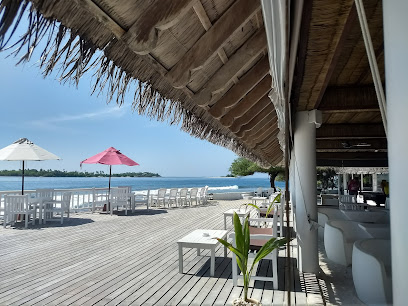
Sunset Restaurant
Experience exquisite flavors and breathtaking ocean views at Sunset Restaurant in Huraa - your ultimate dining destination in the Maldives.
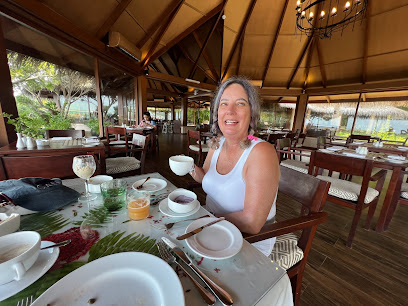
Koimala Restaurant
Discover authentic Maldivian cuisine at Koimala Restaurant in Huraa - where fresh seafood meets breathtaking ocean views.
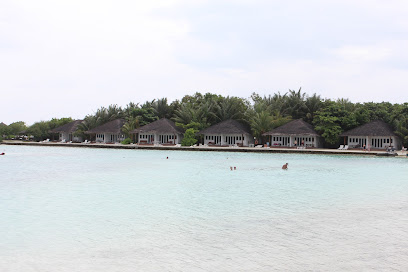
Baraabaru
Experience exquisite Indian cuisine at Baraabaru in North Malé Atoll, where vibrant flavors meet breathtaking views.
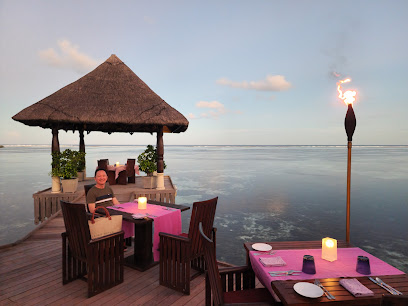
Markets, malls and hidden boutiques
LiyuS Pizza Huraa
Experience the best of pizza in Huraa at LiyuS Pizza, where tropical charm meets delicious flavors in a cozy setting.
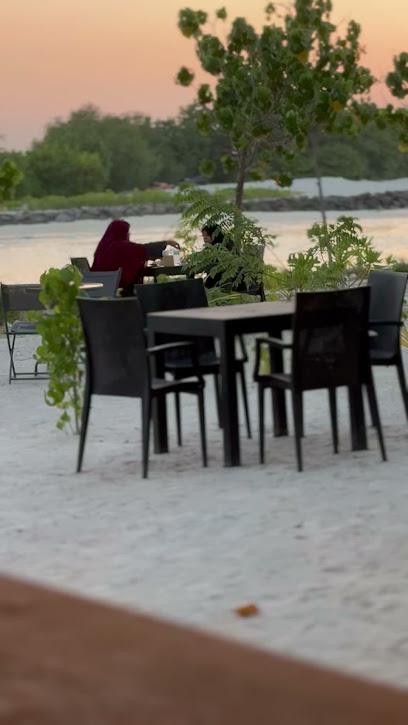
Bake Away
Discover the enchanting Bake Away coffee shop in Huraa, where aromatic brews and delightful pastries await in a cozy tropical setting.
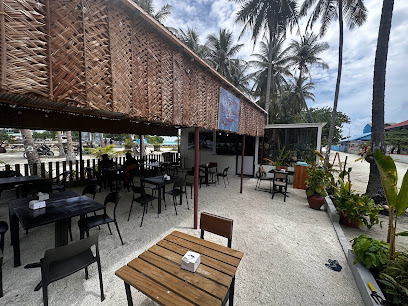
Mango Shop Maldives
Explore the vibrant creativity of the Maldives at Mango Shop, your destination for unique souvenirs, handcrafted jewelry, and local art.
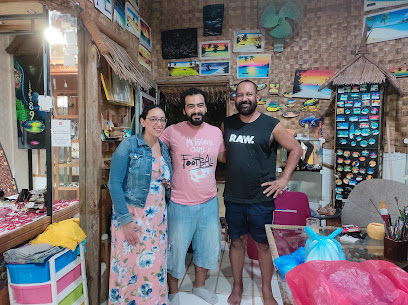
Beach Store
Explore the Beach Store in Huraa for all your travel essentials and local delights, ensuring a hassle-free beach experience.
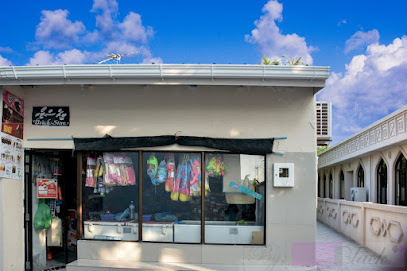
SUN SAND SEA
Explore the vibrant gifts of the Maldives at Sun Sand Sea, where every treasure tells a story of the island's culture and craftsmanship.
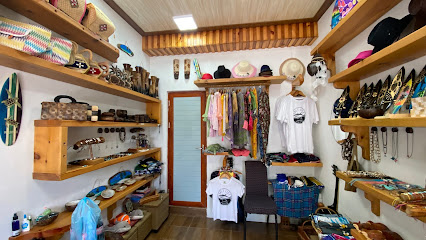
Palette Art Shop Paradise Resort
Explore Palette Art Shop Paradise Resort for unique Maldivian souvenirs and local art, perfect for capturing your travel memories.
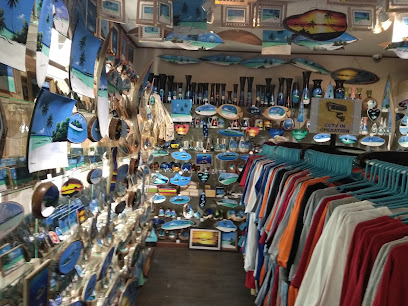
Secret Sweet
Experience the ultimate coffee and dessert haven in Huraa, Maldives at Secret Sweet, where every bite is a delight.
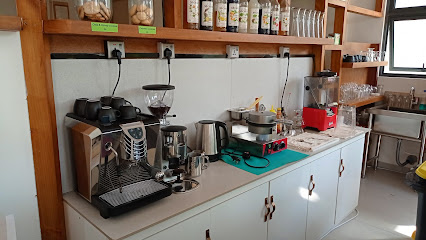
Huraa STO Pharmacy
Visit Huraa STO Pharmacy for reliable health services and products in the heart of the Maldives, ensuring your wellness during your tropical getaway.
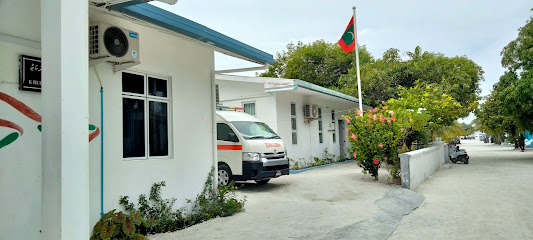
Beach Fashion
Discover stylish beachwear and casual clothing at Beach Fashion, the premier clothing store in Huraa, Maldives.
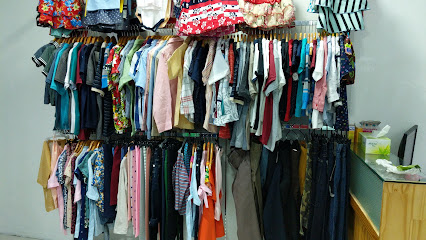
Shamla Taste
Discover the delightful flavors of coffee and pastries at Shamla Taste, the heart of Huraa's vibrant café culture.
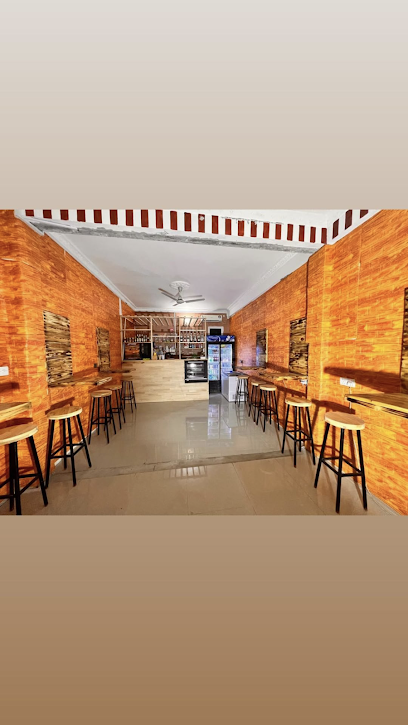
Lobster Shop
Explore the Lobster Shop in Himmafushi for unique handcrafted souvenirs and a taste of Maldivian culture.
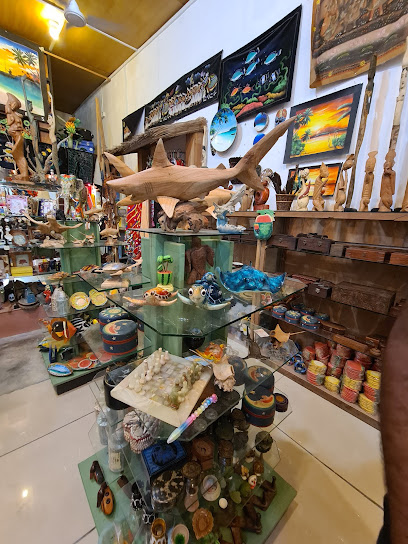
Teamo Shop
Explore the vibrant offerings at Teamo Shop, Huraa's essential supermarket for local delights and international products.

OLA JAVA
Experience the rich flavors of coffee and local culture at OLA JAVA, a cozy café in Huraa perfect for relaxation and connection.
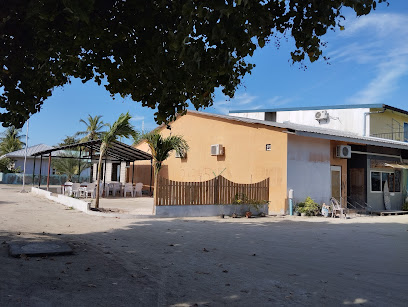
Debonair
Explore Debonair in Huraa for unique Maldivian souvenirs, handcrafted art, and cultural mementos that beautifully capture the spirit of the Maldives.
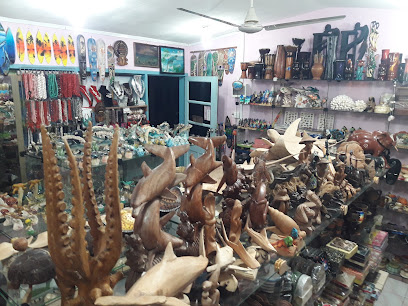
Vilares Store
Explore Vilares Store in Huraa for authentic Maldivian goods and a vibrant shopping experience that reflects local culture and hospitality.
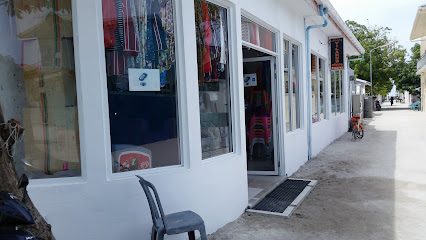
Essential bars & hidden hideouts
The Harbor
Discover The Harbor in Huraa, a charming cafe offering exquisite coffee, local snacks, and breathtaking waterfront views in a serene setting.
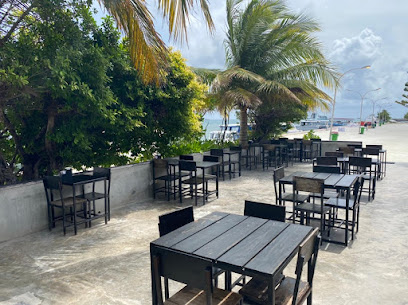
Hulhangu/Captain's Bar- Main Bar
Experience vibrant nightlife and stunning views at Hulhangu/Captain's Bar, the perfect tropical getaway in the Maldives.
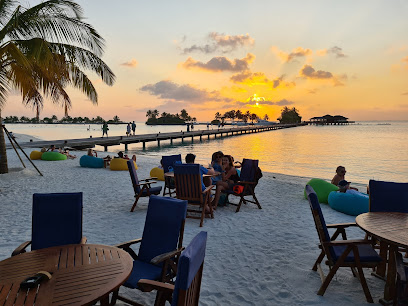
Sunset Holidays & Restaurant Huraa
Experience the flavors of the Maldives at Sunset Holidays & Restaurant, where culinary delights meet breathtaking ocean views in Huraa.
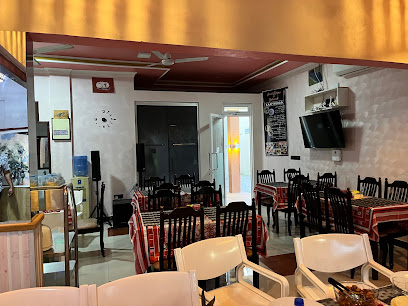
Raiyvila Sunset Terrace Bar
Experience the enchanting Raiyvila Sunset Terrace Bar, where breathtaking ocean views and exquisite cocktails meet the vibrant spirit of Huraa.
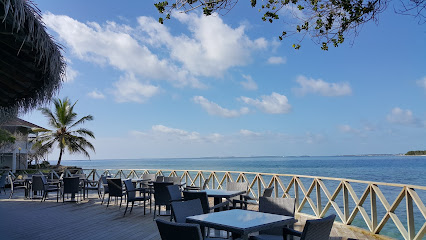
Ocean villa Reception
Discover tranquility at Ocean Villa Reception, a serene lounge in Huraa, Maldives, where nature meets hospitality in a breathtaking setting.
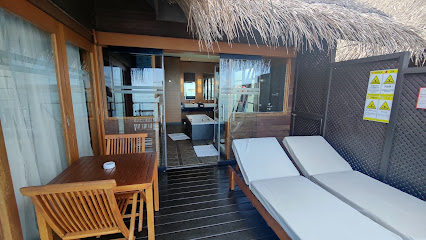
Baraabaru
Experience the rich flavors of India at Baraabaru, a premier vegetarian restaurant in the stunning North Malé Atoll, Maldives.
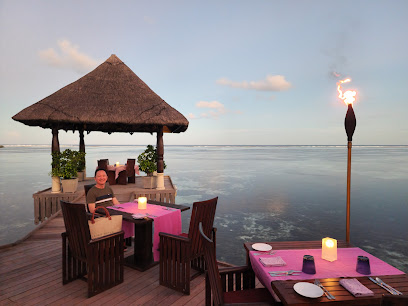
Rehendhi Restaurant & Bar
Experience the culinary treasures of the Maldives at Rehendhi Restaurant & Bar, where fresh flavors meet breathtaking views in Huraa.
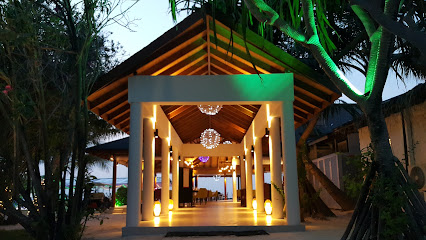
Reef Club
Experience authentic Italian cuisine in the heart of the Maldives, with stunning ocean views and a delightful atmosphere at Reef Club.
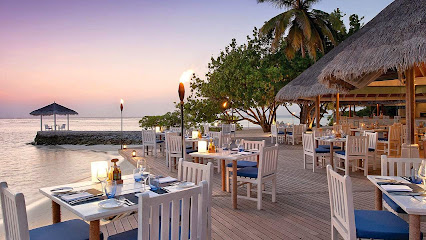
Beach Grill
Discover the vibrant flavors and stunning views at Beach Grill, an enchanting restaurant in Huraa, Maldives, perfect for every dining occasion.
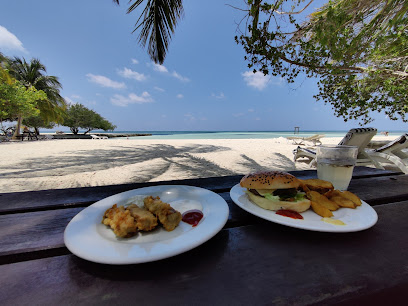
Lohis Bar
Discover the vibrant atmosphere of Lohis Bar in Huraa, offering stunning ocean views and a diverse menu of refreshing drinks and light bites.
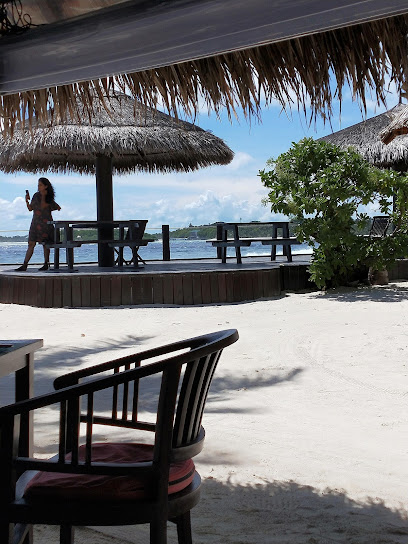
Manta Lounge
Unwind in paradise at Manta Lounge, where exquisite snacks and serene views create the perfect escape on Huraa Island.
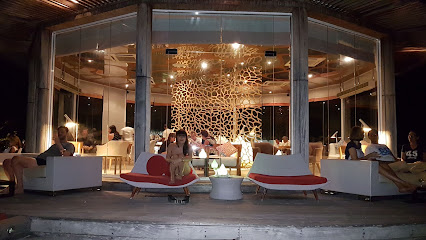
Kandu Grill
Discover the flavors of the Maldives at Kandu Grill, where fresh seafood and grilled specialties meet stunning ocean views.
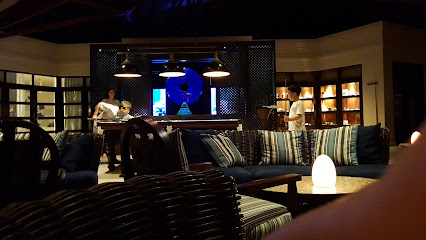
Raiyvilla Bar & Coffee Shop
Experience the charm of Raiyvilla Bar & Coffee Shop in Kanuhuraa, where island vibes meet delightful drinks and unforgettable moments.
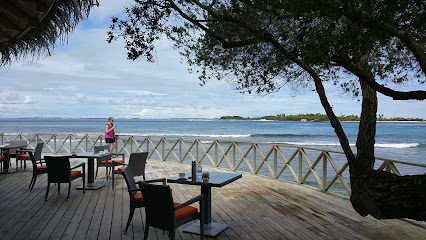
Cafe Huraa
Experience culinary excellence at Cafe Huraa, a hidden gem in Kuda Huraa, serving vibrant dishes inspired by local flavors and international cuisine.
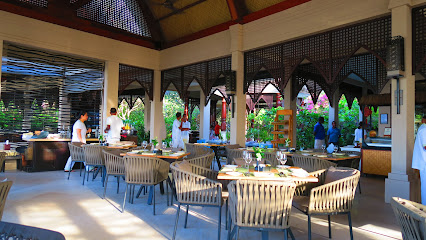
Local Phrases
-
- Helloމިއަދުވެސް
[Miadhaves] - Goodbyeމިއަދުވެސް
[Miadhaves] - Yesއާ
[Ae] - Noނުވަތަށް
[Nuvathave] - Please/You're welcomeތިބެލު
[Vibey] - Thank youމިއަދުވެސް
[Miadhaves] - Excuse me/Sorryމިއަދުވެސް
[Miadhaves] - How are you?ދަރަސަވާނެވެސް
[Dharagavaneves] - Fine. And you?ދަރަސަވާނެވެސް
[Dharagavaneves] - Do you speak English?މިއަދުވެސް
[Miadhaves] - I don't understandއެގެއް ނުވަތަށް
[Egey nuvathave]
- Helloމިއަދުވެސް
-
- I'd like to see the menu, pleaseމިއަދުވެސް
[Miadhaves] - I don't eat meatއެގެއް ނުއަތަށް ދައްތަށް
[Egey nuadhathave dhavathave] - Cheers!މިއަދުވެސް
[Miadhaves] - I would like to pay, pleaseމިއަދުވެސް
[Miadhaves]
- I'd like to see the menu, pleaseމިއަދުވެސް
-
- Help!މިއަދުވެސް
[Miadhaves] - Go away!މިއަދުވެސް
[Miadhaves] - Call the Police!މިއަދުވެސް
[Miadhaves] - Call a doctor!މިއަދުވެސް
[Miadhaves] - I'm lostމިއަދުވެސް
[Miadhaves] - I'm illމިއަދުވެސް
[Miadhaves]
- Help!މިއަދުވެސް
-
- I'd like to buy...މިއަދުވެސް
[Miadhaves] - I'm just lookingމިއަދުވެސް
[Miadhaves] - How much is it?މިއަދުވެސް
[Miadhaves] - That's too expensiveމިއަދުވެސް
[Miadhaves] - Can you lower the price?މިއަދުވެސް
[Miadhaves]
- I'd like to buy...މިއަދުވެސް
-
- What time is it?މިއަދުވެސް
[Miadhaves] - It's one o'clockކާތިގެވާ
[Kajigavane] - Half past (10)މާނައް ދާބޭމަތް (10)
[Mehenave dabimadu (10)] - Morningމިއަދުވެސް
[Miadhaves] - Afternoonމިއަދުވެސް
[Miadhaves] - Eveningމިއަދުވެސް
[Miadhaves] - Yesterdayމިއަދުވެސް
[Miadhaves] - Todayމިއަދުވެސް
[Miadhaves] - Tomorrowމިއަދުވެސް
[Miadhaves] - 1ސަނއް
[Sane] - 2ދިވާ
[Dhavi] - 3ތިސާ
[Thisa] - 4ކުދާ
[Kuda] - 5ފިނާ
[Fina] - 6މެއި
[Mei] - 7ހިތާ
[Hisha] - 8އަންތާ
[Aneha] - 9އެނާ
[Eha] - 10ސާނއް
[Saane]
- What time is it?މިއަދުވެސް
-
- Where's a/the...?މިއަދުވެސް
[Miadhaves] - What's the address?މިއަދުވެސް
[Miadhaves] - Can you show me (on the map)?މިއަދުވެސް
[Miadhaves] - When's the next (bus)?މިއަދުވެސް
[Miadhaves] - A ticket (to ....)މިއަދުވެސް
[Miadhaves]
- Where's a/the...?މިއަދުވެސް
History of Huraa
-
Huraa, a picturesque island in the Maldives, has a rich history that dates back to the early settlement periods of the Maldivian archipelago. Its strategic location near the capital Male' made it an attractive site for early settlers. The island's natural resources, including its lush coconut palms and abundant marine life, supported a thriving community. Archaeological evidence suggests that Huraa was inhabited by seafaring people who relied on fishing and trade for their livelihood.
-
Huraa played a significant role during the period of the Maldivian Sultanate. The island was often visited by sultans and other nobility due to its proximity to Male'. Historical records mention that several key political meetings and gatherings took place in Huraa. The island also served as a retreat for royalty, providing a peaceful escape from the bustling capital. The influence of the Sultanate is evident in the traditional Maldivian architecture and the island's cultural practices.
-
During the colonial era, Huraa, like the rest of the Maldives, came under British influence. The British established a small administrative presence on the island to oversee maritime activities and trade routes. This period saw the introduction of new administrative practices and the modernization of some local infrastructure. The influence of British culture can still be seen in certain aspects of Huraa's administrative and legal systems.
-
Following the Maldives' independence in 1965, Huraa underwent significant changes as part of the country's broader development initiatives. The island saw improvements in education, healthcare, and infrastructure. The construction of new schools, health centers, and roads transformed Huraa into a more modern and connected community. The local economy diversified, with tourism becoming a key industry alongside traditional fishing and agriculture.
-
Huraa is renowned for its vibrant cultural heritage and traditions. The islanders have preserved many ancient customs, including traditional music, dance, and crafts. One of the most notable cultural events is the 'Bodu Beru' performance, a traditional Maldivian drumming and dance spectacle that captures the island's spirit. Additionally, the island's artisans are skilled in creating intricate 'feyli' (woven mats) and other handicrafts, which are popular among visitors as souvenirs.
-
In recent years, Huraa has become a hub for marine conservation efforts. The island's community, in collaboration with local and international organizations, has been actively involved in protecting the surrounding coral reefs and marine life. Initiatives such as coral planting, beach clean-ups, and awareness programs aim to preserve the island's natural beauty and biodiversity. These efforts have not only helped in environmental conservation but have also boosted eco-tourism on the island.
Huraa Essentials
-
Huraa is located in the Kaafu Atoll of the Maldives and is accessible via Malé, the capital city. From Malé, you can get to Huraa by taking a speedboat or a ferry. Speedboats are quicker and take approximately 20-30 minutes, while ferries are less expensive but take about an hour. Speedboat transfers can be arranged through your accommodation or a local travel agency.
-
Huraa is a small island, and most places can be reached on foot. For longer distances, bicycles are available for rent and are a popular mode of transport among locals and tourists alike. There are also local ferries that connect Huraa to other islands in the Kaafu Atoll. Taxis and cars are not commonly used due to the small size of the island.
-
The official currency in the Maldives is the Maldivian Rufiyaa (MVR), but US dollars are widely accepted. Credit cards are also accepted at most hotels, restaurants, and shops, though it's advisable to carry some cash for smaller establishments and local markets. ATMs are available, but it’s best to withdraw sufficient cash in Malé before heading to Huraa.
-
Huraa is generally a safe destination for tourists, with very low crime rates. However, as with any travel destination, it's wise to take standard precautions. Keep your belongings secure and avoid walking alone late at night in unfamiliar areas. There are no specific high-crime areas targeting tourists in Huraa.
-
In case of emergency, dial 119 for the police or 102 for medical emergencies. Huraa has a small medical clinic for minor injuries and illnesses, but for more serious medical issues, you may need to travel to Malé. It is highly recommended to have travel insurance that covers medical emergencies. Pharmacies are available on the island for over-the-counter medications.
-
Fashion: Do dress modestly, especially when away from the beach. Avoid wearing revealing clothing in public areas. Religion: Do respect local customs and traditions. Huraa is a Muslim community, so dress conservatively and avoid public displays of affection. Public Transport: Do be respectful when using ferries or other public transport. Keep noise to a minimum and don't eat or drink on public transport. Greetings: Do greet locals with a smile or a slight nod. A simple 'hello' is usually sufficient. Eating & Drinking: Do try local Maldivian dishes and accept food offerings graciously. Don't drink alcohol in public places as it is prohibited.
-
To experience Huraa like a local, visit the local markets where you can buy fresh seafood and Maldivian crafts. Engage with locals, who are often friendly and eager to share their culture and history. Don't miss the opportunity to participate in traditional fishing or cooking classes. For a unique experience, attend a local cultural event or festival if one coincides with your visit.
Trending Landmark in Huraa
-
Four Seasons Resort Maldives at Kuda Huraa
-
Republic Square
-
Hukuru Miskiyy (مسجد الجمعة القديم في ماليه)
-
Pearl Sands of Maldives
-
Tsunami Monument
-
The Sunrise Huraa
-
Blue Terrace
-
Beach Heaven Maldives - Golden Turtle Guest House
-
Victory Monument
-
Medhu Ziyaaraiy
-
Ibrahim Rasgefaanuge Ziyaaraiy Shrine
-
National Flag (Bodu Dhidha)
-
Sinamale Monument
-
Huraa Kulhi
-
Port of Huraa
Nearby Cities to Huraa
-
Things To Do in Thulusdhoo
-
Things To Do in Hulhumalé
-
Things To Do in Malé
-
Things To Do in Guraidhoo
-
Things To Do in Thoddoo
-
Things To Do in Fulidhoo
-
Things To Do in Ukulhas
-
Things To Do in Dhigurah
-
Things To Do in Maafushi
-
Things To Do in Trivandrum
-
Things To Do in Kanyakumari
-
Things To Do in Kochi
-
Things To Do in Bentota
-
Things To Do in Hikkaduwa
-
Things To Do in Colombo










